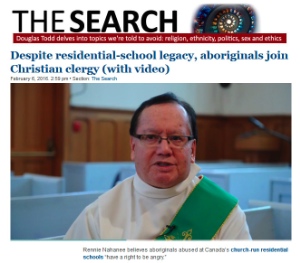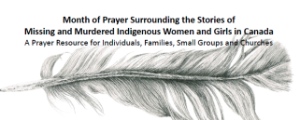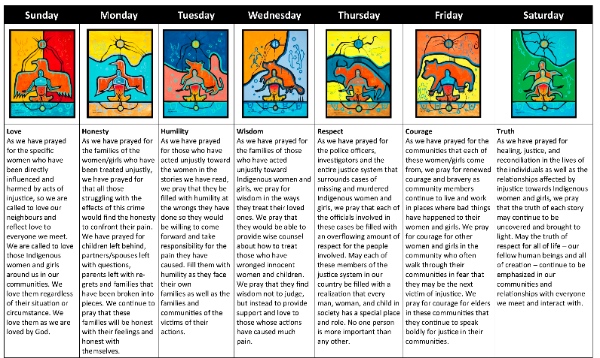
The annual Downtown Eastside Women’s Memorial March will take place this Sunday. Many will be praying for the families of the women, and for justice.
The annual Downtown Eastside Women’s Memorial March takes place this Sunday (February 14) at noon. Some Christians will be there for the march; others will be there in spirit.
One encouraging example of that willingness to engage with the situation is Willoughby Church in Langley. Among the ministries highlighted on its website – youth, daycare, community garden, hospitality, global missions – is the prayer ministry.
And when you click on the link to the prayer ministry, you are directed to a page dedicated to a Month of Prayer for Missing and Murdered Indigenous Women.
Here is what is says:
As we approach this month of prayer, we frame each week around the Seven Sacred Teachings (also referred to as the Seven Grandfather Teachings) found in Indigenous cultures. They:
- come from Indigenous communities across Canada and although the specific stories associated with these teachings differ between Indigenous groups, the basic teachings remain the same.
- They were given to many of the Indigenous communities in Canada by Creator as a guide for life.
- They explained the way human beings were to interact and live with the land, the animals, and their fellow human beings.
- They are passed down from the Elders from generation to generation and they are honoured and recognized as the right way to live on the Earth.
-
The Seven Sacred Teachings are Love, Honesty, Humility, Wisdom, Respect, Courage and Truth.
For the rest of the prayer guide go here. The prayer guide comes from the Canadian Aboriginal Ministry Committee (CAMC), a ministry of the Christian Reformed Church. You can access more CAMC materials at their tool kit here: aboriginalministry.wordpress.
Another positive sign, also from Langley, is a series of three events (February 19 – 21) – Reflections on Reconciliation with Wab Kinew – put on by the Journey to Reconciliation Committee.
 Vancouver Sun writer Douglas Todd pointed out in a timely article (February 6) that a surprisingly large number of Indigenous people still identify with the Christian church:
Vancouver Sun writer Douglas Todd pointed out in a timely article (February 6) that a surprisingly large number of Indigenous people still identify with the Christian church:Despite a misconception among urban Canadians that aboriginals hate Roman Catholic and Protestant denominations, Christianity is integral to the spiritual life of two of three of the country’s 1.4 million indigenous people, even while church attendance can be irregular. . . .
The biggest group of Canadian aboriginals, 506,000, affiliate with Roman Catholicism. The National Household Survey found another 134,000 associate with the Anglican Church, 59,000 with the United Church and 36,000 are Pentecostal.
“I think in the 1950s the churches began realizing they had made a mistake with residential schools. But it took another 50 years to get out of them,” said Aldred, 56. . . .
Even though Nahanee would like to see Pope Francis repeat earlier Vatican apologies for Canada’s residential-school system, including one that operated a few hundred metres from St. Paul’s Church, he regrets how some good things that happened in the schools are being ignored.
“People are now afraid to say positive things about the schools,” said Nahanee. He noted, for instance, that in the late 1800s the Catholic priest for St. Paul’s Church and its related residential school stopped an attempt by the legendary Vancouver saloon owner, “Gassy Jack” Deighton, to seize Squamish Nation land.



